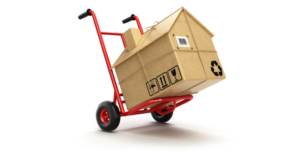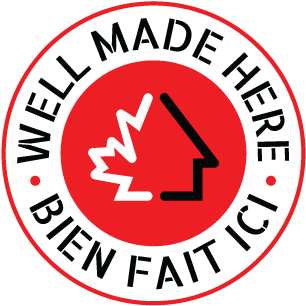Open Letter Campaign: Manufacturers Urged to Influence the Federal Election
The leadership of “Well Made Here” believes it is timely for manufacturers to take up their pens during the ongoing election campaign and share their concerns through local media and social media networks.

According to Richard Darveau, President and CEO of the “Well Made Here” organization, the moment created by President Trump’s intensified protectionism provides a prime opportunity to draw the attention of decision-makers and the public to the ecosystem made up of residential-sector manufacturers and the specialized retailers who support them.
To this end, a model open letter—customizable by each company—is provided below, ready to be sent to journalists covering your region.
It would also be worthwhile to copy the candidates in your federal riding and send any published letters to the “Well Made Here” leadership (email: info@ici-here.ca) to help generate momentum.
Ready, set, publish!
Build More, Build Better, Build Canadian
I am a manufacturer in Canada. I contribute to my region’s economy. My products help citizens enjoy high-quality homes.
However, I am concerned that tensions with the American administration are overshadowing another, more structural crisis: the housing crisis. We need to build more.
The historic housing shortfall is evident in the growing demand driven by sustained population growth, while the pace of construction is not increasing fast enough.
According to the Canada Mortgage and Housing Corporation, 3.5 million additional housing units will be needed by 2030—on top of current plans—to restore affordability to the housing market.
Approximately 11% of Canadian households live in core housing need—an unacceptable reality in a society as prosperous as ours.
Added to this is the urgent need to renovate the existing housing stock. Many homes require major repairs to meet modern safety, health, and energy efficiency standards.
Unfortunately, Canada’s current programs and tax policies do not do enough to encourage renovations or the conversion of existing buildings into residential units. This is a significant barrier to improving our built environment.
Which brings me to my second imperative: we must build better.
Canada has pledged to achieve net-zero emissions by 2050. The building sector accounts for about 13% of direct GHG emissions, a figure that rises to nearly 30% when including “embodied” emissions from material production and transportation.
Lastly, building Canadian represents a strategic advantage.
In today’s climate of trade tensions, prioritizing local purchasing in housing would have major economic benefits and be a politically wise stance.
We must encourage homeowners and developers to choose durable, energy-efficient materials that are designed and manufactured as close as possible to where they will be used—in other words, products accredited by “Well Made Here.”
This is how we can build faster, reduce pollution and waste from the construction sector, and stimulate the local economy through manufacturing jobs and the vitality of community-rooted home improvement stores.
Our company is part of the “Well Made Here” program (ref: ici-here.ca/about), supported by nine major hardware banners. We are more than 200 manufacturers producing 15,000 hardware and building materials—enough to theoretically build an entire home, from basement to attic, using only high-quality, Canadian-made products. Altogether, we employ 375,000 Canadians.
Which leads me to ask the candidates in this short federal campaign three questions aloud:
- What do you propose to close the gap between housing supply and the growing need for new and renovated homes?
- What do you propose to encourage the adoption of durable materials—sometimes more expensive upfront but more cost-effective in the long run and far more environmentally responsible?
- What do you propose to support a large-scale rollout of the Well Made Here initiative?
This is the perfect time for candidates to fully support our industry—to speed up construction, meet climate goals, and reduce our dependence on the United States.
Name
Company
Contact Information
